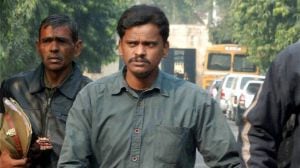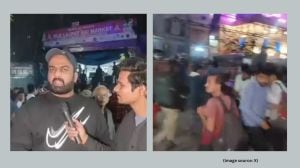Research was Hailey’s bestseller recipe
Arthur Hailey, the best-selling author whose exhaustively researched suspense novels like Airport and Hotel also became screen hits, died in...

Arthur Hailey, the best-selling author whose exhaustively researched suspense novels like Airport and Hotel also became screen hits, died in his sleep on Wednesday at his home in the Bahamas, his agent, Nancy Stauffer, said on Thursday. He was 84.
His wife, Sheila, said doctors believed he had suffered a stroke.
Hailey produced a string of best-sellers, achieving international fame in 1968 with his novel Airport, a page-turner about an airport manager’s ordeal after a bomber boards a plane flown by the manager’s womanizing brother-in-law. It inspired a 1970 movie starring Burt Lancaster and Dean Martin. Other novels by Hailey include Hotel (1965), The Moneychangers (1975) and Overload (1979).
Critics often dismissed Hailey’s success as the result of a formulaic style in which he centered a crisis on an ordinary character, then inflated the suspense by hopping among multiple related plotlines. But he was so popular with readers that his books were guaranteed to become best-sellers.
He would spend about one year researching a subject, followed by six months reviewing his notes and, finally, about 18 months writing the book. That aggressive research —— tracking rebel guerrillas in the Peruvian jungle at age 67 for The Evening News (1990), or reading 27 books on the hotel industry for Hotel —— gave his novels a realism that appealed to readers, even as some critics complained that he used it to mask a lack of literary talent.
Hailey was born to working-class parents on April 5, 1920, in Luton, England. At 14, after he failed to win a scholarship, he left school. He overcame his lack of education — and an inclination to airsickness — to become an airman during World War II.
After the war, disillusioned with what he saw as a socialist trend in postwar Britain, he moved to Canada, where he worked first at the Maclean-Hunter Publishing Co., then in sales.
A psychological profile suggested that his vast creativity needed another outlet. The turning point came in 1955, when he was aboard a flight and began daydreaming about what would happen if all the passengers and crew were incapacitated and if it were left to him to land the plane. —NYT



- 01
- 02
- 03
- 04
- 05




























